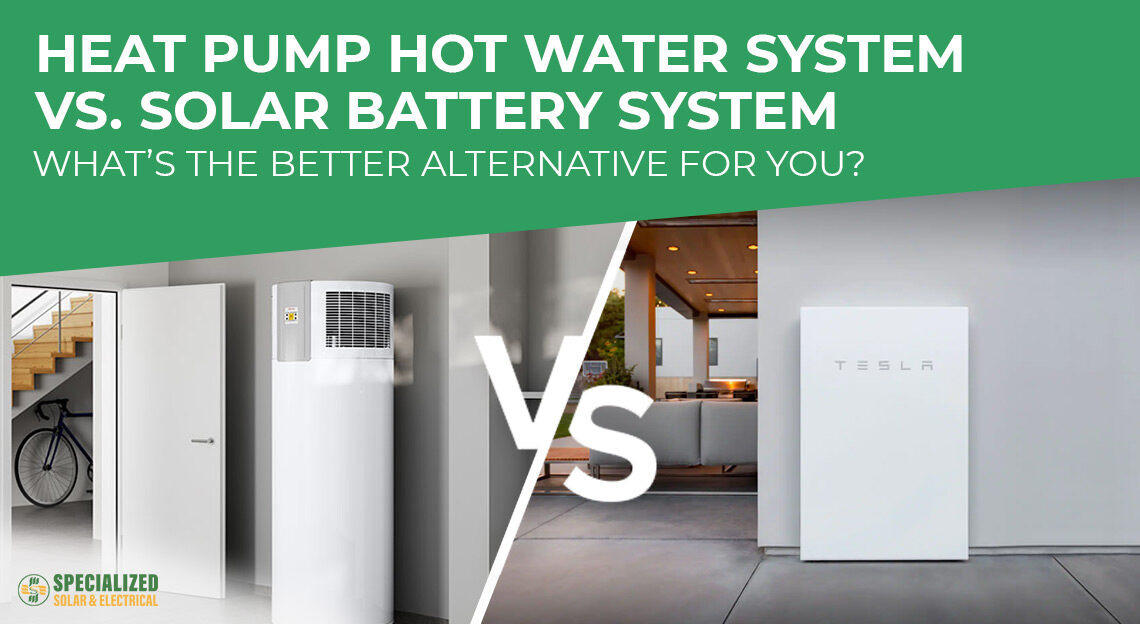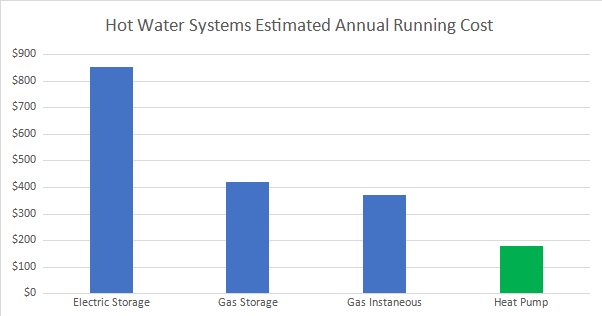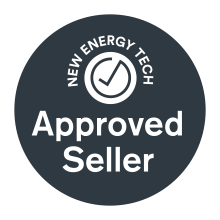A recent survey found that nearly all solar households want to buy a battery, but price is still a “put-off”. The Solar Citizens survey of 1,700 households nationwide found that cost is still the main barrier to uptake of home battery storage, but that a “significant 84 per cent” of rooftop solar households are considering buying one in the next three years.
Solar batteries taking off, despite price-tag
Despite this, home batteries are being installed in far larger numbers than a couple of years ago. Today, around one in four of our installations at Specialized Solar & Electrical include battery storage,” according to Specialized Solar’s General Manager, Anthony Igmen.
And this trend is indicative of what’s happening across the industry.
At the Clean Energy Summit in July, Warwick Johnson, MD of solar industry consultant SunWiz said, “there has been a major turnaround in customer interest in installing both solar and battery storage at the same time.”
So, what’s driving this surge in battery installations?
For many, a battery is a type of insurance against skyrocketing energy prices and worth the price tag. For others, it’s about energy security and protection from power outages.
But for most of us, a solar battery is still big money, even though the benefits are undeniable.
Lower cost alternative
If the price of a solar battery is putting you off, what other options are there? How else can you store your valuable solar electricity to use when the sun’s not shining?
The answer is simple. And a lot cheaper than a battery.
The solution is a heat pump hot water system.
A heat pump hot water system acts as a form of solar energy storage. Instead of exporting your surplus solar electricity to the grid for a small feed-in credit, you use it to heat the water in your tank. So, when you get home, there’s plenty of hot water stored in the tank ready for use. And it’s cost you nothing!
On this blog:
- How much of my energy bill goes into hot water heating?
- How much can I save using a heat pump hot water system?
- Why not just use an ordinary electric hot water system?
- Heat pumps vs solar batteries: which has the best payback?
- Are there any rebates for heat pump hot water systems?
How much of my energy bill goes into hot water heating?
Hot water heating can account for up to 27 per cent of the total energy bill of Australian homes according to energy.gov.au.
Given that the average energy bill (electricity and gas) for Victorian homes is around $2,300 a year*, this means most households are paying up to $620 a year for hot water heating.
However, if you have an older resistive electric hot water system, you could be paying even more. That’s because the average annual running cost of a conventional electric hot water system is $850 for Victorian homes. Gas is not quite as expensive, at around $420 a year. But with gas prices rising all the time, the cost of gas hot water heating is heading in only one direction – and that’s up!
Source: Sustainability Victoria’s Hot Water Running Costs
How much can I save using a heat pump hot water system?
Even without solar power, a heat pump hot water system will save you are $730 a year compared to a conventional electric hot water system. And compared to gas, the savings are around $240 a year.
You can save even more by connecting your heat pump hot water system to a rooftop solar power system. This allows you to use the surplus solar electricity your system produces during the daytime to heat the water in your tank, boosting the value of your self-produced solar.
Why storing your surplus solar is the best way to save
The bigger the difference between the grid electricity cost and the feed-in tariff, the more you save by storing your surplus solar electricity rather than exporting it.
Grid electricity costs around 27c/kWh in Victoria – and this is rising. The feed-in tariff is around 5.2c/kWh – and this keeps falling.
Therefore, the benefit of storing your excess solar electricity – and using it later – is the difference i.e., 21.8c/kWh.
Why not just use an ordinary electric hot water system?
Whilst you can connect your old electric hot water system to your solar power system, it’s not the best way to use your valuable solar electricity.
That’s because conventional electric hot water systems are highly inefficient. For every unit of electricity required to power them, they will always produce less than one unit of heated water.
In contrast, heat pump hot water systems are extremely efficient. For every unit of energy to run them, they produce at least three units of hot water. So that means you’re making a lot better use of your valuable solar electricity.
Heat pump hot water systems vs solar batteries: which has the best payback?
Heat pump hot water: payback 3-6 years
A quality, family-size hot water heat pump, after rebates, will cost between $2,000 to $4,000. Given that the average annual savings (without solar) are $640, the payback period for heat pumps is between 3 to 6 years. And with solar power running the heat pump, the payback can be even quicker.
Because most hot water heat pumps have a warranty of 5-10 years, the payback is typically well within the warranty period of most heat pumps.
Solar battery: payback 10+ years
A 10kWh or 13kWh solar battery will cost over $10,000 installed. Depending on the brand, it could be as much as $16,000 or $17,000. After rebates (if you are eligible), the purchase price could be around $3,000 lower. But that still leaves an out-of-pocket cost of around $13,000 for a premium battery brand.
So how much can you save with a battery?
A 13kWh battery will save you around $3.50 a day in grid electricity assuming you’re paying 27c/kWh for grid power, and you cycle it once a day. Over a year, the savings are around $1,280.
That means you’re looking at a payback of more than 10 years, by which time the battery will be out of its 10-year warranty.
So, if you are basing your decision on the usual payback criteria, batteries don’t stack up – yet. However, if you are buying a battery for other reasons – such as protection from power outages or to charge an EV – a solar battery could be a great investment.
Are there any rebates for heat pump hot water systems?
Yes, there are federal and state government rebates for heat pump hot water systems. Hot water rebates can reduce the purchase price of a hot water heat pump by more than $2,000. The biggest hot water rebates are for upgrading from an old electric hot water system. But there are generous hot water rebates for brand new heat pump hot water systems, as well as upgrading from gas.
Get in touch for an obligation-free quote
If you’d like a quote for a heat pump hot water system, get in touch with an expert at Specialized Solar & Electrical. We stock leading brand heat pump hot water systems at affordable prices. Plus, we have the facts at our fingertips when it comes to hot water rebates and rebate eligibility.













